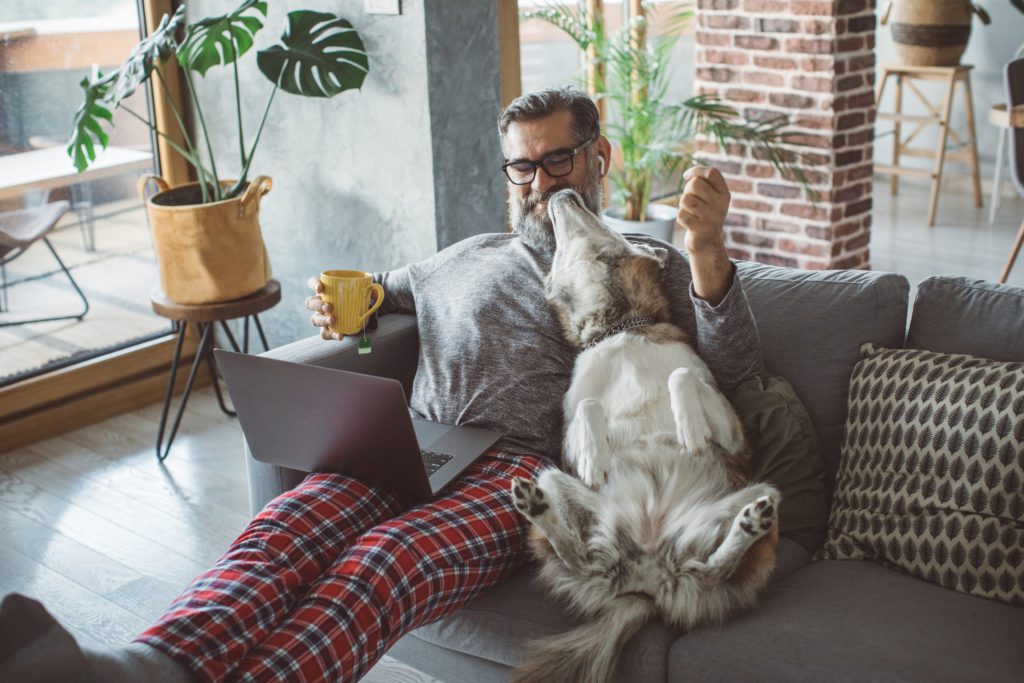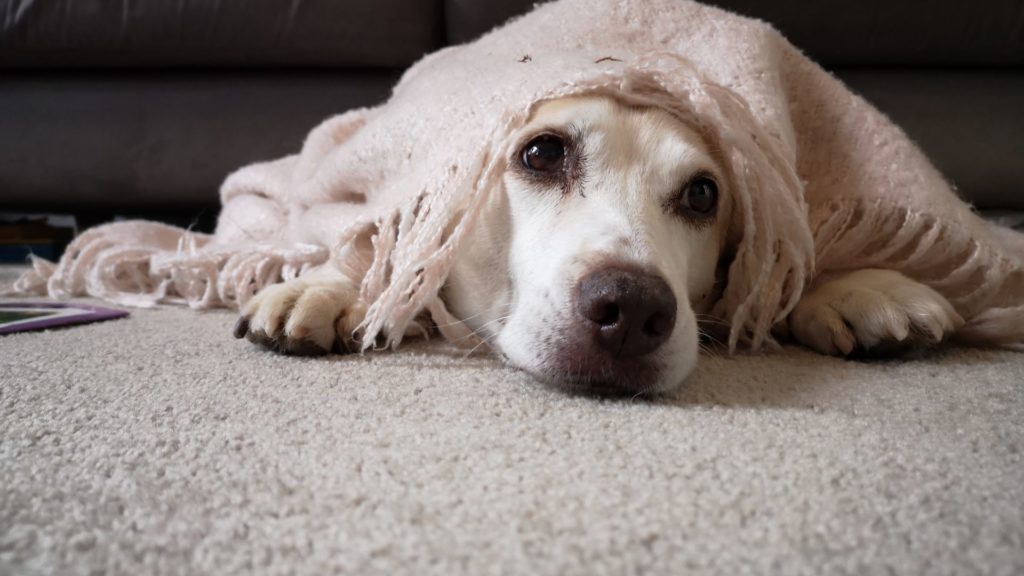How to help your anxious animals during Fireworks season
Fireworks season is about to start again, which means it’s time to start thinking about the safety of our pets. Some dogs and cats aren’t upset by the explosions, while others are highly stressed or get hurt by panicking and bolting to get away from the terrifying noise and lights.
Signs of anxiety can include pacing, trembling, panting, drooling, attention-seeking (vocalising, pawing, nuzzling, and climbing on people), hiding, and bolting. Escape attempts tend to involve hiding behind furniture and staying in a garage or bathroom. Because the source of the noise is confusing, inside dogs may want to escape to the outside, and outside dogs may be frantic to get inside.
Nervous pets tend to drink more water, so make sure there is plenty available. Bring outside pets inside, close the curtains, and put some music or the TV on. Keep your cats securely inside, and if your dog needs to use the toilet during fireworks, take him or her outside on a leash. Make sure all your pets wear an ID tag or a collar that contains your phone number. Tags and collars can be lost, so keeping your microchip details up to date on the online register is the most useful in helping you find your lost pet. Finally, remember that small pets and birds are also affected by fireworks, so consider taking steps to prevent their anxiety around fireworks too.
Your animals usually cope better if you’re with them during fireworks events, so think ahead before leaving them alone.

For mild anxiety, there are lots of things you can try and home to reduce your pet's anxiety
For many frightened animals, just staying in a crate (as long as they are used to one) or in a “safe” room with a closed door is all you’ll need to do. Hiding is not a sign of a problem, if your pet returns to a normal behaviour when the fireworks are over. Add in music with a regular beat to help provide a distraction, or a TV programme.
Synthetic pheromone sprays such as Feliway for cats and Adaptil for dogs are readily available from your regular vet. These sprays imitate the properties of natural pheromones released by mother cats and dogs to calm and settle their offspring, and gives pets a sense of safety and well-being – they work well for stress in general, not just for fireworks.
Ask your regular veterinarian about calming supplements or diets they may have available.
Some pets respond to pressure wraps, such as Thundershirts/Thundercaps or Anxiety Wraps. The pressure on the body is thought to have a calming effect.
If the anxiety isn’t extreme, you can try giving a high-value food or toy when fireworks are going off, with the goal being to associate fireworks with a positive experience.
Medication
It’s much easier to prevent a fearful reaction than it is to reverse one, so if your pet is really nervous around fireworks, a short-term sedative before the fireworks start may be what’s needed. Make an appointment to talk to your regular vet ahead of time, so you can have something on hand to give your pet before the noise begins. Several medications are used for fireworks or thunderstorm phobias in dogs; however, remember do not use any of your own prescriptions because the dosage or medication may be potentially harmful.
Some severely anxious pets may benefit from medications that increase the level of serotonin. Their effects do vary, so you will need to test them with your pet before the fireworks season starts. Some of these drugs can take several weeks, if not more, to build up to an effective level, so they are not a spur-of-the-moment fix.
Finally, don’t forget to find out which clinics or emergency hospitals are open during fireworks season in case you need one, to help avoid time delays and stress.


